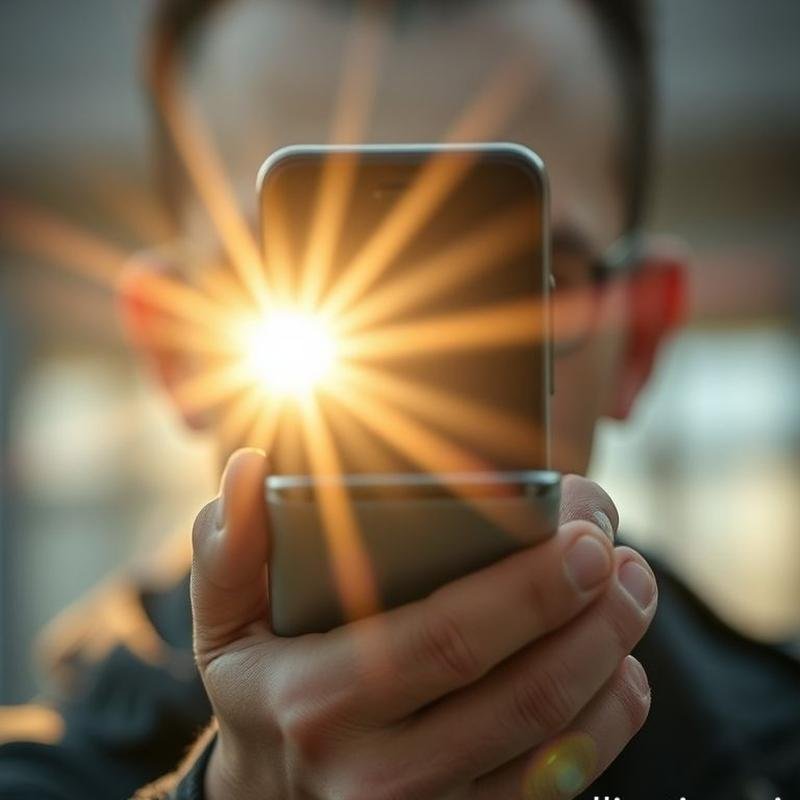Your mobile device may be tracking your activity. Government entities may be monitoring your movements.

Smartphone Surveillance: Are You Being Tracked?
Are you aware that your smartphone, that ubiquitous device in your hand, represents a significant vulnerability to your personal data? It is a portal through which governments can covertly monitor your activities, communications, and even biometric data. This is not speculative; it is a demonstrable reality facilitated by sophisticated spyware capable of tracking individuals with unprecedented accuracy. Within the complex geopolitical landscape of the Arab world, where national security imperatives intersect with individual liberties, this documentary elucidates how smartphones have become potent surveillance tools and the considerable cost we incur for a perceived sense of security. Prepare to confront the unsettling truth: your privacy is not assured; you are currently under observation.
Before we examine the compelling evidence, please share your primary concerns regarding surveillance in the comments section. We also encourage you to subscribe to this channel to further your understanding of this critical issue.
Pegasus: The Transparent Enclosure
Pegasus, and the broader spectrum of digital repression technologies, represent a grave threat. Consider your smartphone, the device essential for your connectivity, being transformed into a transparent enclosure, silently scrutinizing your every action. This is the chilling reality imposed by spyware such as Pegasus, a sophisticated cyber weapon developed by the Israeli firm NSO Group. This weapon can infiltrate devices without user interaction, employing a “zero-click” exploit. This eliminates the need for users to click on malicious links or open suspicious messages, enabling a silent and comprehensive breach that can fundamentally compromise your digital life. In the United Arab Emirates and Saudi Arabia, the devices of courageous activists and journalists have become digital battlegrounds. Ahmed Mansoor, an Emirati journalist who openly criticized his government, was a victim of this technology. His smartphone, once considered a valuable asset, was weaponized against him, exposing his private information and disrupting his life.
The Arsenal of Digital Repression
However, Pegasus is not the only tool in this clandestine domain. FinFisher, Galileo, and other similar technologies constitute a comprehensive arsenal available to governments. In Egypt, during the January 25th revolution, the Mubarak regime employed these malicious tools to monitor dissidents and suppress dissent. Leaked documents reveal that Arab governments have acquired these advanced technologies from European and American companies, with the express purpose of suppressing freedom of expression online and silencing dissenting voices. Companies such as Verint and Rayzone provide sophisticated location tracking technologies that extend beyond simple geolocation to include analysis of social media activity. Your posts, likes, and even fleeting comments are subject to intense scrutiny. Complex algorithms relentlessly analyze your digital footprint to construct profiles that may be unrecognizable even to yourself.
The Global Landscape of Surveillance
In 2013, Edward Snowden exposed the PRISM program, a clandestine initiative that granted the US National Security Agency direct access to user data on platforms such as Facebook and Google. In China, the government enacted the Cybersecurity Law, granting itself broad authority over digital content with the aim of suppressing dissent. During the January 25th revolution in Egypt, social media was weaponized by the government to identify and apprehend protesters. The absence of comprehensive international legal frameworks leaves individuals vulnerable to these escalating threats. This legal vacuum facilitates blatant violations of fundamental rights. A 2020 report by Human Rights Watch revealed the use of sophisticated spyware, such as Pegasus, to compromise the devices of journalists and activists, enabling the monitoring of their digital activities in minute detail.
The Societal Cost
But what is the societal cost? For every instance of a terrorist apprehended through these technologies, how many innocent individuals become victims of these ever-expanding surveillance networks? Is this the price we are willing to pay for the illusion of security? A 2019 United Nations report cautioned that counter-terrorism laws are frequently used as a pretext for mass surveillance, undermining privacy and freedom of expression. Does combating terrorism in Egypt justify the monitoring of all communications? Is the protection of national security truly worth the sacrifice of fundamental rights? The European Court of Human Rights ruled against the United Kingdom in the Big Brother Watch case, finding that its mass surveillance system violated the right to private life. In China, the Cybersecurity Law mandates that companies store data within the country and provide it to the government upon request. How far can governments proceed in the name of security before transitioning into outright repression?
Reclaiming Digital Privacy
However, we must not succumb to despair. In this digital age, privacy is not a discretionary privilege, but a fundamental right that must be vigorously defended. As surveillance capabilities become more pervasive and sophisticated, so too do the tools available to protect ourselves. Estimates suggest that over 85% of global internet traffic is now encrypted, making data interception a significantly more challenging task. Applications such as Signal, which utilize an open-source, end-to-end encryption protocol recommended by Edward Snowden, provide a secure platform for private communications. We should also recall Apple’s staunch resistance to the FBI in 2016, when the company refused to unlock an iPhone, even under immense pressure. Furthermore, powerful tools such as Virtual Private Networks (VPNs) are readily available, which mask your IP address and encrypt your internet traffic, thereby hindering tracking efforts.
Warning Signs and Global Dialogue
This situation does not warrant pessimism. Edward Snowden’s 2013 revelations regarding the PRISM program sparked a critical global dialogue. A 2019 UN report raised concerns about the misuse of counter-terrorism laws for mass surveillance. The 2020 decision by the European Court of Justice invalidating the Privacy Shield highlighted the fragility of cross-border data protection. These are not isolated incidents, but rather significant warning signs.
The Choice We Make Daily
Now, more than ever, we must amplify our voices to demand transparency and accountability. Let us remember Michelle Bachelet’s assertion: Privacy is not a luxury, but a fundamental right indispensable for the exercise of other rights. The future of digital privacy is not predetermined, but a choice we make daily. Will we succumb to pervasive surveillance, or will we reclaim our compromised digital freedom?
Conclusion
In conclusion, this investigation underscores the growing tension between national security and individual liberties in the digital age. Surveillance, while intended to protect us, often oversteps boundaries and infringes upon our privacy. We must strive to achieve a balanced approach, ensuring our safety without sacrificing our fundamental rights.
Having considered the evidence presented, do you believe that Arab governments are adequately addressing the protection of their citizens’ privacy in the face of escalating digital threats? Please share your opinions and experiences in the comments section, as your voice is a powerful instrument in our collective pursuit of digital privacy.










